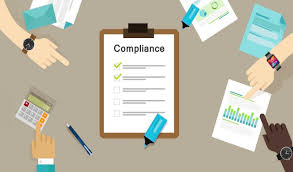“Our biggest client contacted us and said we are no longer allowed to send them a paper bill. We have to do something like send the bill electronically. Does that mean we can e-mail them a .PDF?”
We’ve heard this question, and questions like this, for many years, and the frequency is increasing. Electronic Billing – or, more accurately, Electronic Data Interchange (EDI) – is a common way to exchange time and billing information in an electronic format for many industries today. There are over 250 different types of electronic billing data formats The most common formatsused in the legal industry are:
- LEDES 1998B
- LEDES 2000
- Litigation Advisor
- Chubb Legalgard
- Data Clearinghouse
- Law Audit Services (LAS)
- TyMetrix
- Examen
Why do companies want electronic billing?
Global and domestic corporations are under pressure to reduce their costs and slash spending. Firms that provide outside services (especially legal services) are a natural target.
What’s involved with electronic billing?
There are two sides to this process –
- Software applications that allow firms to produce electronic invoicing data files
- Products and services that interpret said files and make it possible for firms to receive invoicing data.
Firms that have to produce electronic invoicing data files often go to incredible (as well as costly and inefficient) lengths to avoid doing what their paying clients want them to do.
- They continue to send paper bills and complain they don’t get paid, even though they’ve received several notices that this billing method (i.e., paper) is no longer a feasible method to use.
- They try to send their bills in .PDF format and profess surprise when informed that this is not electronic billing.
- They pay their staff to print out worksheets from their time and billing application, then manually re-enter the data on their clients’ web sites.
- They ask their I.T. consultants (who have no experience in this field) to cobble together inadequately constructed invoice data files that “sorta kinda” look like what the client wants, in the hope they will be accepted.
Feigning ignorance or spending large amounts of man-hours manually editing or re-entering data to try to meet clients’ invoicing requirements is not acceptable in 21st century legal technology. Yet many firms continue to push back when instead they should be trying to understand electronic billing – and seeing what advantages can be gained from it.
Has your firm been informed it must now submit your invoicing data electronically? What have you been required to do? How’s it working out for you? Please post your comments here.
In Part II of this post, we’ll examine the nitty gritty of the electronic billing process, referencing various legal billing software products, and discuss how you can make it work for your firm. If you can’t wait, please contact us at 1-877-ELS-0555 for advice and support with your electronic billing needs.

Dana Riel is President and Founder of Business Solutions, Inc., serving the Washington, D.C. metropolitan area since 1985. Her firm is the authorized training center for the region for Time Matters and PCLaw by PCLaw|Time Matters, PLLC; Timeslips and Sage 50 Accounting by Sage Software; and QuickBooks by Intuit Corporation. She also serves as a consultant for Caret Legal (formerly known as Zola Suite), CosmoLex, Soluno & TimeSolv. As a trainer, Dana has provided training services to organizations such as the DOD Defense Logistics Agency, Judge Advocate General’s Office (JAG)/Department of the Navy, University of the District of Columbia School of Law, U.S. Department of Commerce and the U.S. Department of Veterans Affairs, as well as with small‐ to mid‐size law firms in the Baltimore‐Washington D.C. area. In 2009, she participated in the series of day‐long seminars sponsored by the District of Columbia Bar Association Practice Management Section, titled “Basic Training: Learn About Running a Law Office”. Ms. Riel also served as an Adjunct Professor in Georgetown University’s Paralegal Studies Program, having taught the course, “Legal Ethics/Legal Technology” in 2009; and “Legal Technology” for the Spring and Summer Semesters of 2010. She presently serves on the Advisory Board for PCLaw|Time Matters, PLLC.



